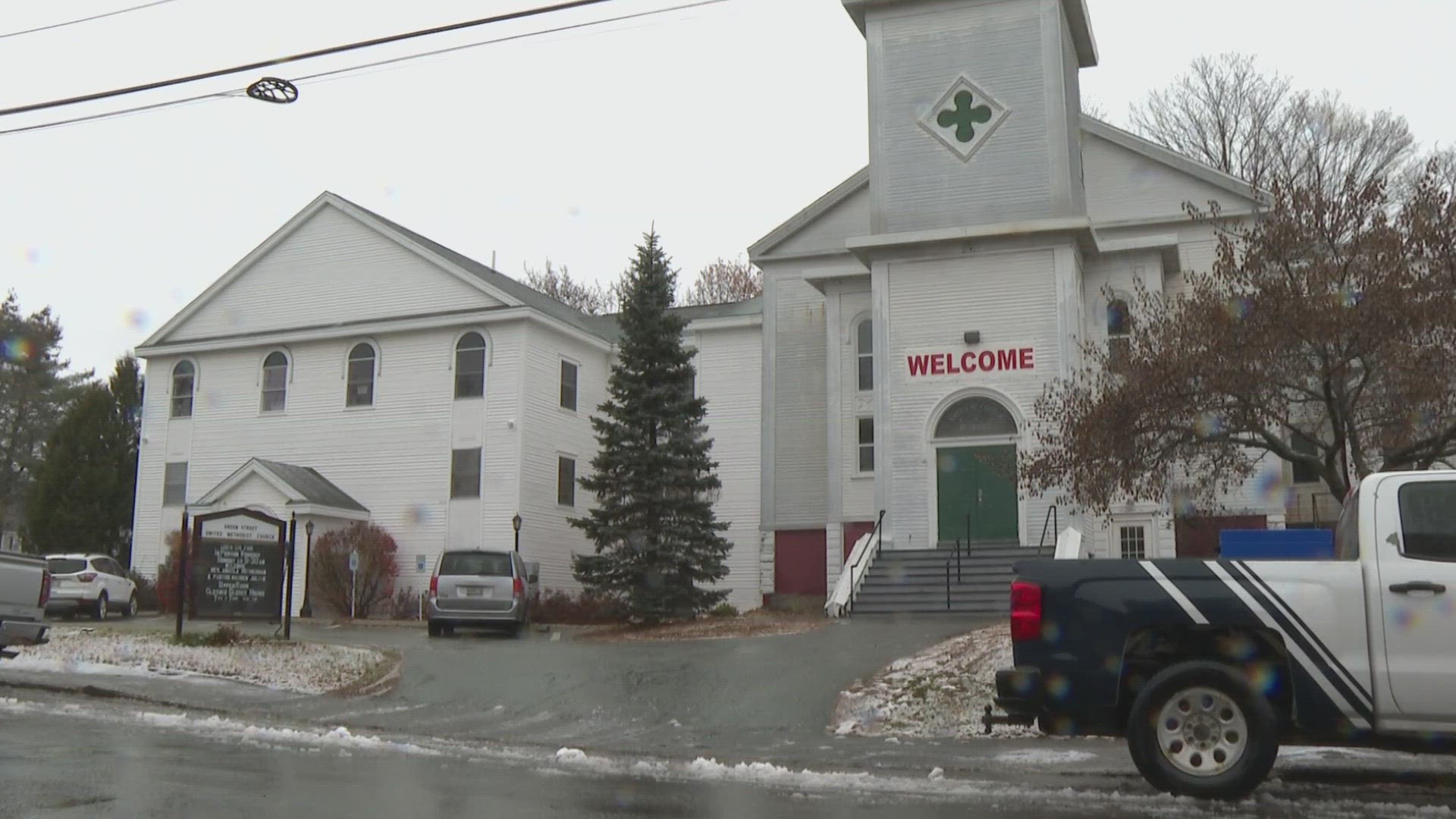AUGUSTA, Maine — A group is working towards establishing a new shelter for people experiencing homelessness in Augusta.
The endeavor aims to repurpose the historic Green Street United Methodist Church, which was built in 1828, into the Green Street United Community Living Center—a 40-bed low barrier shelter.
The ambitious project hinges on the successful fundraising of $650,000 to acquire the church building.
"If we have unused space that can be used to house people, from a Christian point of view, that's our calling to meet people's basic needs," Rev. Angela Rotherham, lead pastor of the church, said.
The church, currently up for sale, has become too large for its congregation to sustain.
Rotherham acknowledges the bittersweet reality, stating, "I can't lie; it's going to be a sad process, but the beautiful thing is, since we are in a partnership, we've been able to say 'you work on your fundraising, but can we stay and celebrate our high holy days?' So, this will be our last Christmas and Easter in the building."
Betty St. Hilaire, a founding member of the Community Living Center, shares the reverend's sentiments.
"We said let's go take a look. And when we came in, it was like we were home," St. Hilaire said.
The group has been actively searching for suitable space to house a shelter, and they believe the Green Street United Methodist Church is the perfect fit, pending successful fundraising efforts.
The proposed Community Living Center aims to offer shelter and support services during the day, providing a haven for individuals facing homelessness.
Augusta Mayor Mark O'Brien expressed support for the initiative, "I and others tend to think it will help improve things by giving that portion of our community a place to go during the day rather than just the downtown area."
The plan includes converting existing church spaces into shelter areas, supported housing units, community spaces, a computer lab, and a teaching kitchen.
The low barrier shelter is designed to accommodate individuals facing challenges accessing other shelters due to mental health issues, substance use disorders, or criminal records—providing them with the necessary support to regain stability.
"Something as simple as providing a place for a shower. How are you going to go to a job interview if you haven't showered in a week and don't have clean clothes and don't know how to prepare for that?" St. Hilaire said.
To engage with the community and share their vision, the group is hosting an open house on Tuesday from 4 to 7 p.m.
This event will provide an opportunity for organizers to present the model for their plan and address any questions or concerns community members may have.
With a hopeful outlook, the organizers aim to have the shelter open by the fall of the following year.

